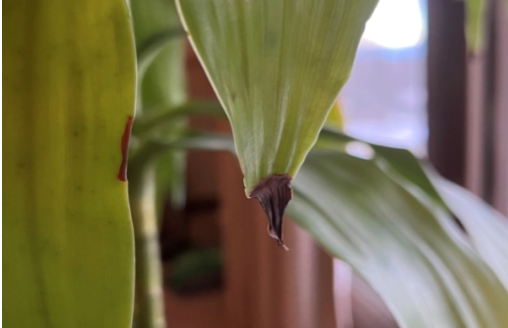Keeping house plants healthy during the winter months
Many of our houseplants originate from tropical places. That almost sounds crazy because we wouldn’t keep our homes hot and humid for their survival, especially during the winter. However, these plants survive quite well in our oftentimes plant-unfriendly homes, because they’ve evolved in rather difficult-to-grow sites in their tropical environment. Even though they’re tough, they still depend on us for their survival.
Wintertime is especially difficult for houseplants. Home heating systems dry the air making it more desert-like and not so well-suited for leafy plants. The potting soil is often on the cold side and interferes with the plant’s ability to take in water through its roots. Although sunlight shines deeply into the house during the winter it is less intense and only lasts for a few hours. Plants depend on adequate levels of sunlight for photosynthesis to make the food they need. Dirty windows dim the incoming sunlight and dust accumulations on the plant’s leaves makes the problems worse. As a result houseplants are often starving during the winter months.
Here’s how to help your house plants during the winter months. Avoid over-watering the plants; plants take up water at a slower pace and saturated soil can lead to root disease problems. Move the plants to the brightest rooms. Check the plants frequently for insect and disease issues that can become worse during the winter. Keep the plants away from heat registers and protect them from cold drafts. Give the plants an occasional shower to remove the dust from their leaves and promptly remove dead and dying leaves.
Don’t fertilize or prune the plants during the winter. This may stimulate them to grow depleteing the energy reserves they need to stay healthy until spring. Aim to maintain your houseplants in a resting, non-growth state from November through early March. Plants that bloom during the winter (for example, Christmas cactus, poinsettias and orchids) may need slightly more water while in bloom, but they should not be fertilized at this time.
Understanding the difficult issues that houseplants face during the winter months helps you make appropriate changes in the way you take care of them. Keeping your plants in good health until spring is the goal.
For more information, contact Jacob Weber, Horticulture Agent, [email protected] or 620-724-8233.


